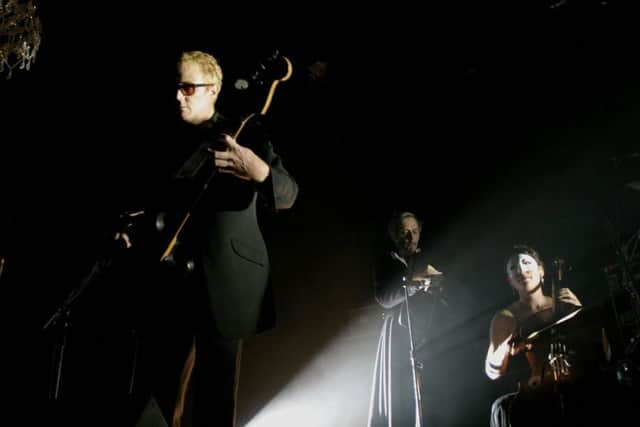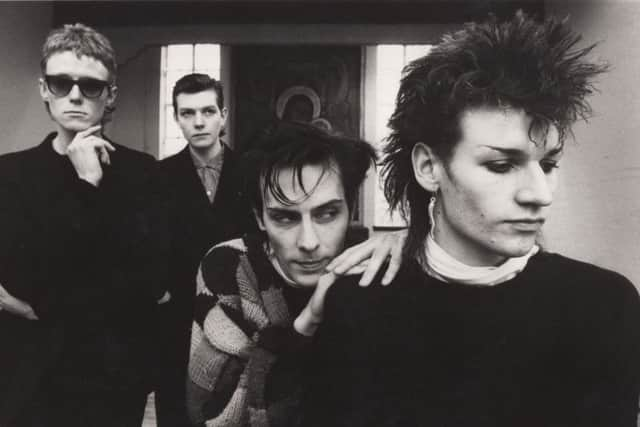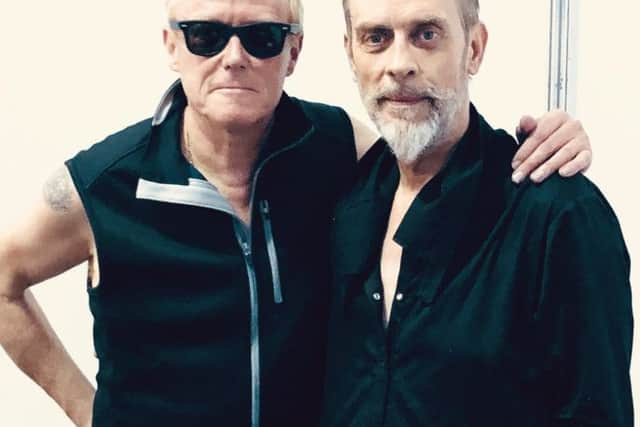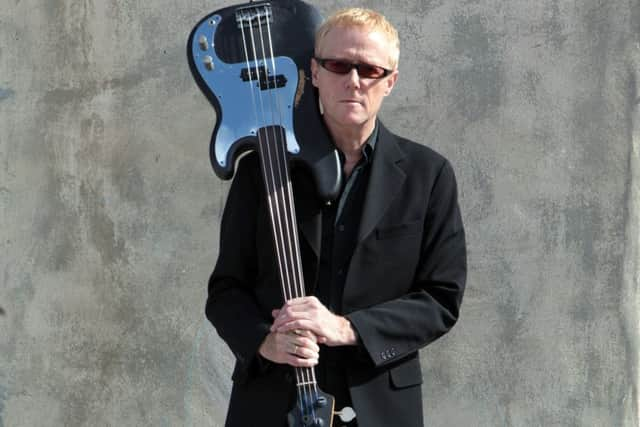Music interview: David J on celebrating 40 years of Bauhaus


Bass player David J admits he and singer Peter Murphy hadn’t spoken to each other for 12 years after the making of their last album, Go Away White, until he received an email “totally out of the blue” asking if he would like to join him for some gigs in San Francisco.
“He had a residency at a club called the Chapel where he was going to play every album he’d done and conclude with two nights of Bauhaus and I said ‘Thanks for thinking of me, I wouldn’t really be interested in the whole thing but certainly the Bauhaus songs yeah’,” he explains. “My initial thought was ‘This is an opportunity for reconciliation’ before we even spoke about money. I was very pleased that he had made this overture to me. Then it was advertised and it sold out in an instant and then they added a third night.”
Advertisement
Hide AdAdvertisement
Hide AdThe fact that Murphy was then three times refused a visa to perform in the US might have jeopardised the reunion had they not also have been offered the chance to play at a festival in Guadalajara, Mexico. “We thought this would be great, just to stick your toes in the water to feel out how this was going to be and it couldn’t have been better, to be honest,” says J. “I had some trepidation going in because we parted on pretty acrimonious terms, to say the least, all of us, but Peter seems like he’s in a very good place at the moment, he’s very focused and he was actually a joy to be around.


“I met him on the stage where we were rehearsing in Mexico – which was actually the venue that Bauhaus had played at in Guadalajara last time we were there – and he came up and gave me a big hug and a kiss on the cheek and said ‘Now you’re stuck with me again, you fool’. There was a good vibe. We didn’t do that much talking, we just counted into the set and played and it clicked. The other two musicians, Marc Slutsky and John Andrews, were great and there was a good chemistry there.”
Feeling the show’s success had “set the tone for future endeavours” and that he’d enjoyed playing the Bauhaus material “in a way more so than any of the other reunions tours”, J agreed to play more shows. “I’d had the distance of 12 years and just in the context of now that material sounds so good to me,” he says. “I’m impressed by the originality of it and how it’s stood the test of time. What is really gratifying is that I can play it now with pretty much consummate ease. I can hear on those old records where I’m stretching to play, I’m someone who’s come from punk rock basically and now I can play those parts like I wanted to when I was 21.”
It’s 40 years since the band first formed in Northampton – originally as Bauhaus 1919, in honour of the German art school. Their first recording, just six weeks after their first gig, yielded the classic single Bela Lugosi’s Dead, which came out on the tiny indie label Small Wonder, in August 1979.
Advertisement
Hide AdAdvertisement
Hide AdLast month J revisited the studio in Wellingborough for an intimate gig and question-and-answer session. He remembers he, Murphy and fellow band members Daniel Ash and Kevin Haskins (J’s brother) had been “very keen” when they first entered Beck Studios back in ’79. “My brother was 19, the rest of us were 21, it was our first experience in something like a proper studio and the band were on fire. We were kind of full of ourselves, we were pretty confident and we felt like we had some good material, especially with Bela Lugosi’s Dead, we were very excited about that song, so we didn’t mess about. We recorded five tracks on that day and it turned out as it did. It was a great debut for the band.”


J says their early aspirations for Bauhaus were “to make music that didn’t exist, that existed only in our heads, and to please ourselves because you can’t please anybody else if you’re not pleasing yourself”.
“We had a vision for the band that was reflective of that time –post-punk – and we wanted to realise that vision.”
Realise it they did, over the course of four albums starting with In The Flat Field, on the then-fledgling 4AD Records in 1980 – of which J says now “We were stretching for something that wasn’t quite within our grasp and there’s a tension and a beauty to that”. It was followed by Mask, The Sky’s Gone Out and Burning From The Inside, for the ‘major’ indie Beggars Banquet.
Advertisement
Hide AdAdvertisement
Hide AdThough music magazines such as NME took time to warm to their black-clad image and even darker sound, which melded elements of post-punk, dub, glam rock, psychedelia and funk, by the time the band were having top 20 hits they’d come round. “We were intentionally apart from the scene, as it were, and we even enjoyed winding up journalists at the time,” admits J. “Especially those with an attitude of not rising above your station, of being anti-star. We thought ‘We’re going to rub this in your faces’.”


In 1982 Bauhaus’ cover of the David Bowie song Ziggy Stardust sent them into the mainstream, and they subsequently appeared in the horror film The Hunger, in which Bowie starred with Catherine Deneuve. J remembers Bowie being “very friendly” towards them. “I think he was relating to us like he’s one of the boys in the band, away from all the film people. He was delightful.
“I had a lovely experience where I was standing by a jukebox that he had outside his dressing room looking at the record and I felt this looming presence behind me and I heard this voice, ‘Do you mind if I pick one?’ and it turned out it’s Bowie. I said ‘Sure’, so he punched in whatever and this track came on Grooving With Mr Bloe. I always thought when Low came out that the track A New Career in a New Town he cribbed the harmonica line from Grooving With Mr Bloe.
“He starts dancing in front of me, it’s just us two there, and he’s doing this full-on David Bowie dance and smiling that grin and I’m nodding, thinking ‘This is totally surreal’ and somehow I plucked up the courage and said ‘This reminds me of something, this track’ He said ‘What’s that then?’ and carried on dancing. I said ‘One of yours’ and he said ‘Well, what?’ I said ‘It’s off Low’ He said ‘Which one?’ I said ‘A New Career in a New Town’. Then he put his finger to his lips and winked and smiled and carried on dancing. That was magic.”
David J and Peter Murphy play at Leeds Beckett University on December 8. www.davidjonline.com